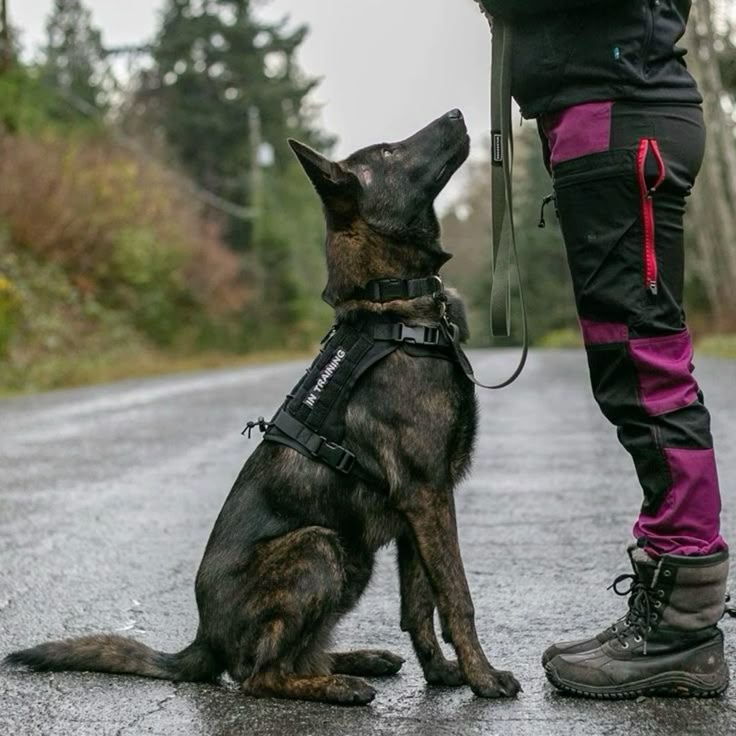Finding the right dog training program in a bustling city like Los Angeles can feel like a daunting task. With numerous options available, from private trainers to large academies, discerning which approach will truly work for your dog and your lifestyle requires careful consideration. This article provides expert tips to guide Los Angeles pet owners in selecting a Dog training Los Angeles program that delivers effective, lasting results and fosters a stronger bond with their canine companion.
1. Define Your Goals and Your Dog’s Needs
Before you even begin your search, clarify what you hope to achieve.
- Identify Specific Behaviors: Are you dealing with puppy nipping, leash reactivity, separation anxiety, aggression, or just basic obedience? Different issues require different expertise.
- Consider Your Dog’s Personality: Is your dog shy, confident, easily distracted, or highly energetic? A good trainer will tailor their approach to your dog’s individual temperament.
- Assess Your Lifestyle: How much time can you realistically commit to training? This will influence whether private lessons, group classes, or a board-and-train program is best for you.
2. Research Training Philosophies
Dog training methodologies vary widely. Understanding the different approaches will help you choose one that aligns with your values.
- Positive Reinforcement: This method focuses on rewarding desired behaviors, making training enjoyable for your dog and building trust. It’s widely recommended for its humane and effective outcomes. Many top LA trainers, like those at spcaLA and Elevated Canine Academy, utilize this.
- Balanced Training: This approach incorporates both positive reinforcement and mild corrections. While effective for some, ensure the corrections are humane and the trainer emphasizes building a positive relationship.
- Avoid Aversive Methods: Steer clear of trainers who rely heavily on harsh punishments, fear, or intimidation (e.g., shock collars, alpha rolls). These methods can damage your dog’s trust, suppress behaviors without addressing the root cause, and potentially lead to aggression or fear.
3. Prioritize Trainer Qualifications and Experience
The expertise of the trainer is paramount to effective results.
- Certifications: Look for trainers with reputable certifications such as CPDT-KA (Certified Professional Dog Trainer – Knowledge Assessed) or CBCC-KA (Certified Canine Behavior Consultant – Knowledge Assessed). These indicate a commitment to professional standards and ongoing education.
- Experience with Your Dog’s Issues: If your dog has a specific problem (e.g., aggression, severe anxiety), ensure the trainer has a proven track record of successfully addressing similar cases. Ask for case studies or testimonials.
- Specialization: Some trainers specialize in areas like puppy development, service dog training, or behavior modification for reactivity. Choose a specialist if your needs are specific.
4. Seek Transparency and a Comprehensive Consultation
A reputable training program will be transparent about their methods and offer a thorough initial assessment.
- Detailed Assessment: A good trainer will take the time to understand your dog’s history, observe their behavior, and discuss your goals in detail before recommending a program. This might be a paid consultation, but it’s a worthwhile investment.
- Clear Explanation of Methods: The trainer should clearly explain their training philosophy, the techniques they will use, and why they believe it’s the best approach for your dog.
- Realistic Expectations: Be wary of trainers who promise instant “fixes” or guarantee results that seem too good to be true. Effective training takes time, consistency, and owner involvement.
5. Evaluate Program Structure and Support
The format of the training program should fit your learning style and lifestyle.
- Private Lessons vs. Group Classes: Private lessons offer personalized attention for specific issues, while group classes provide valuable socialization and distraction training at a lower cost (e.g., Hollywood Dog Obedience Club, spcaLA).
- Board & Train vs. Day Training: For intensive behavior modification, board-and-train programs (e.g., Fun Paw Care, Elevated Canine Academy) can be highly effective, but they are more expensive. Day training offers a middle ground.
- Owner Involvement: A good program will empower you to be part of the training process, teaching you the skills to maintain results long-term. Look for programs that include follow-up support or owner coaching.
- Ongoing Support: Inquire about post-program support, such as alumni classes, online resources, or direct access to the trainer for questions.
6. Check Reviews and Get Referrals
Word-of-mouth and online reviews can provide valuable insights.
- Online Platforms: Check Google Reviews, Yelp, and specialized dog training directories for testimonials. Look for consistent themes in positive and negative feedback.
- Ask for References: Don’t hesitate to ask trainers for references from past clients, especially those with similar dogs or behavioral issues.
Conclusion
Finding dog training in Los Angeles that truly works involves a proactive and informed approach. By clearly defining your goals, researching training philosophies, prioritizing qualified and experienced trainers, seeking transparent consultations, and evaluating program structures, you can confidently choose a path that leads to a well-behaved, happy dog and a stronger, more joyful relationship for years to come.







